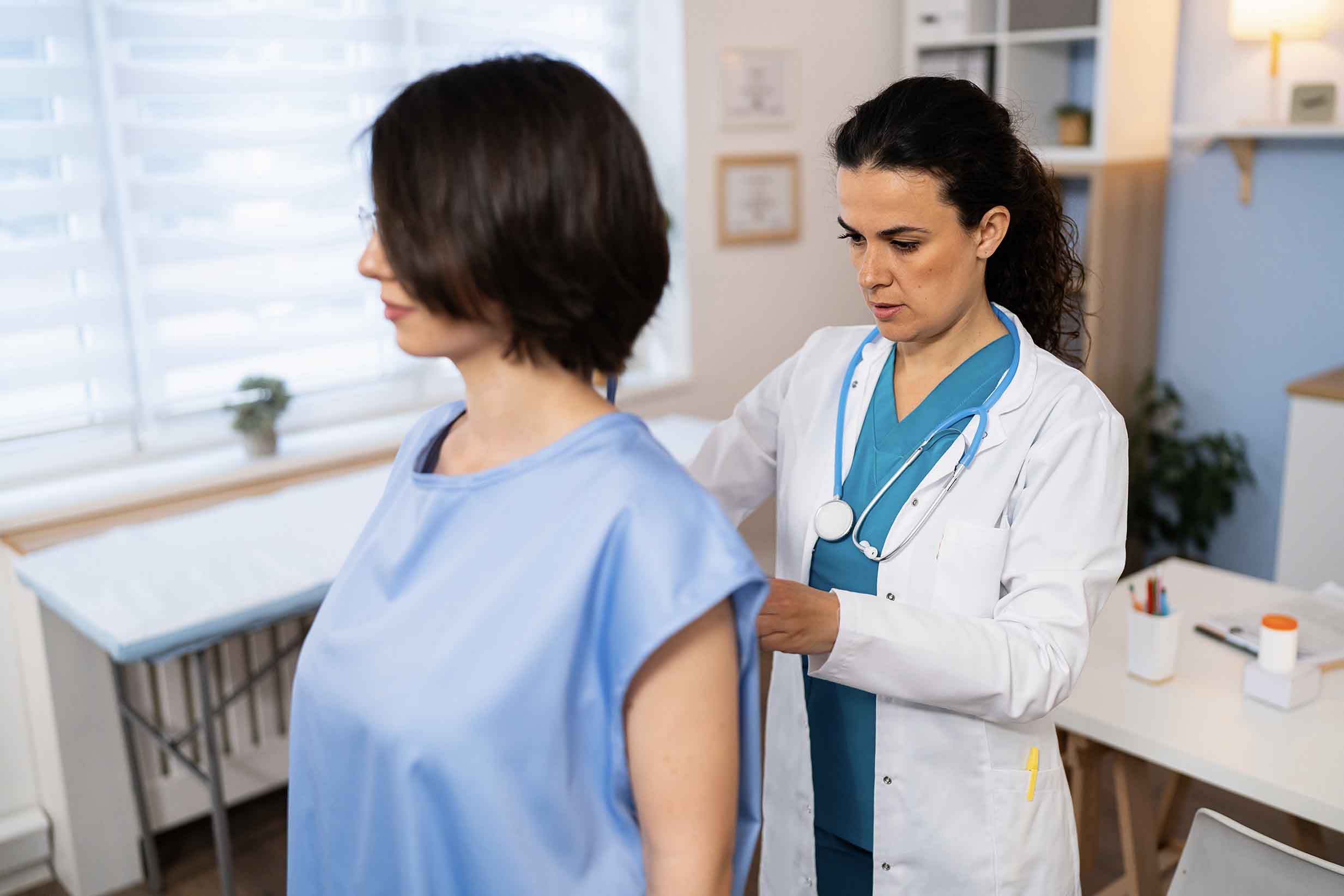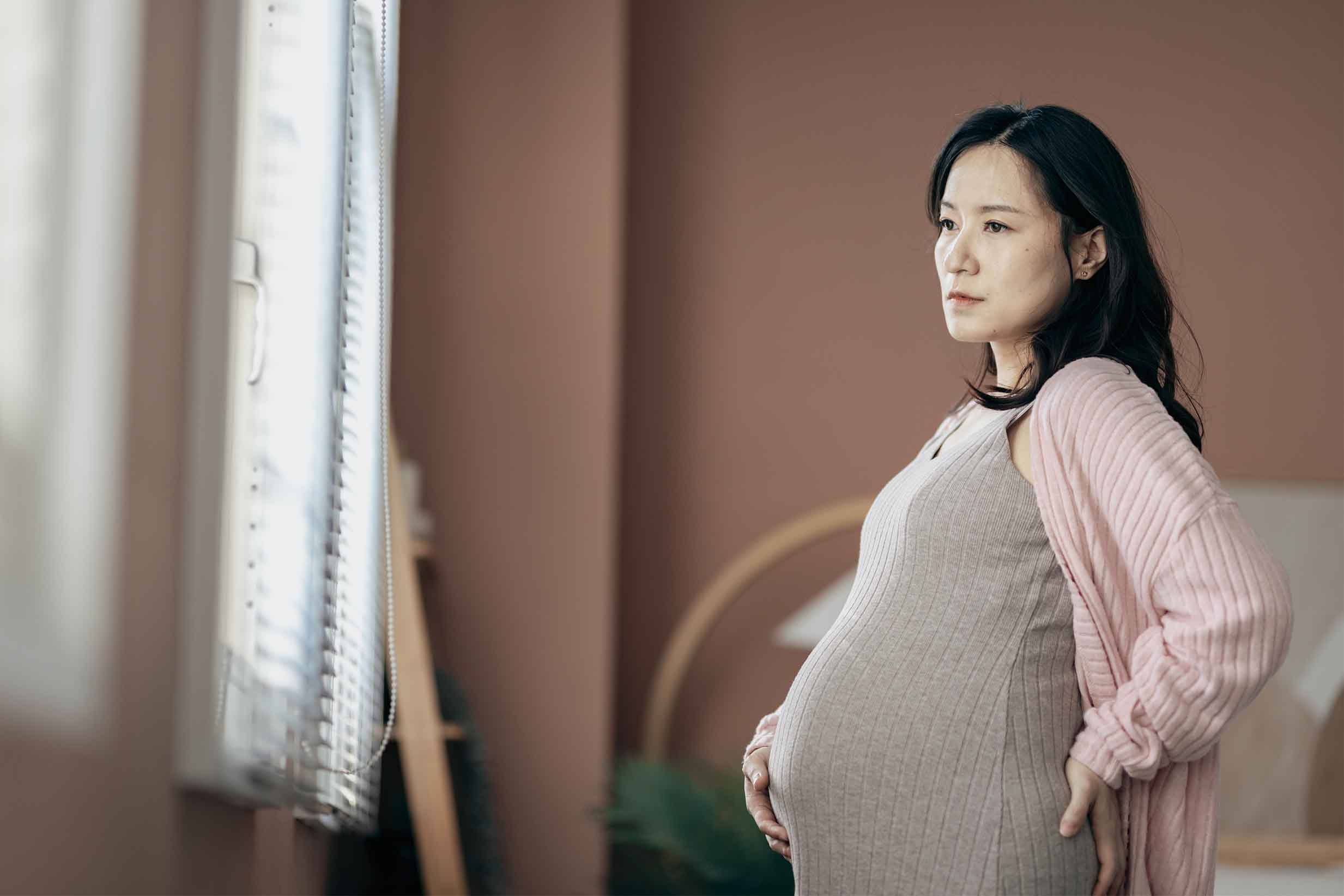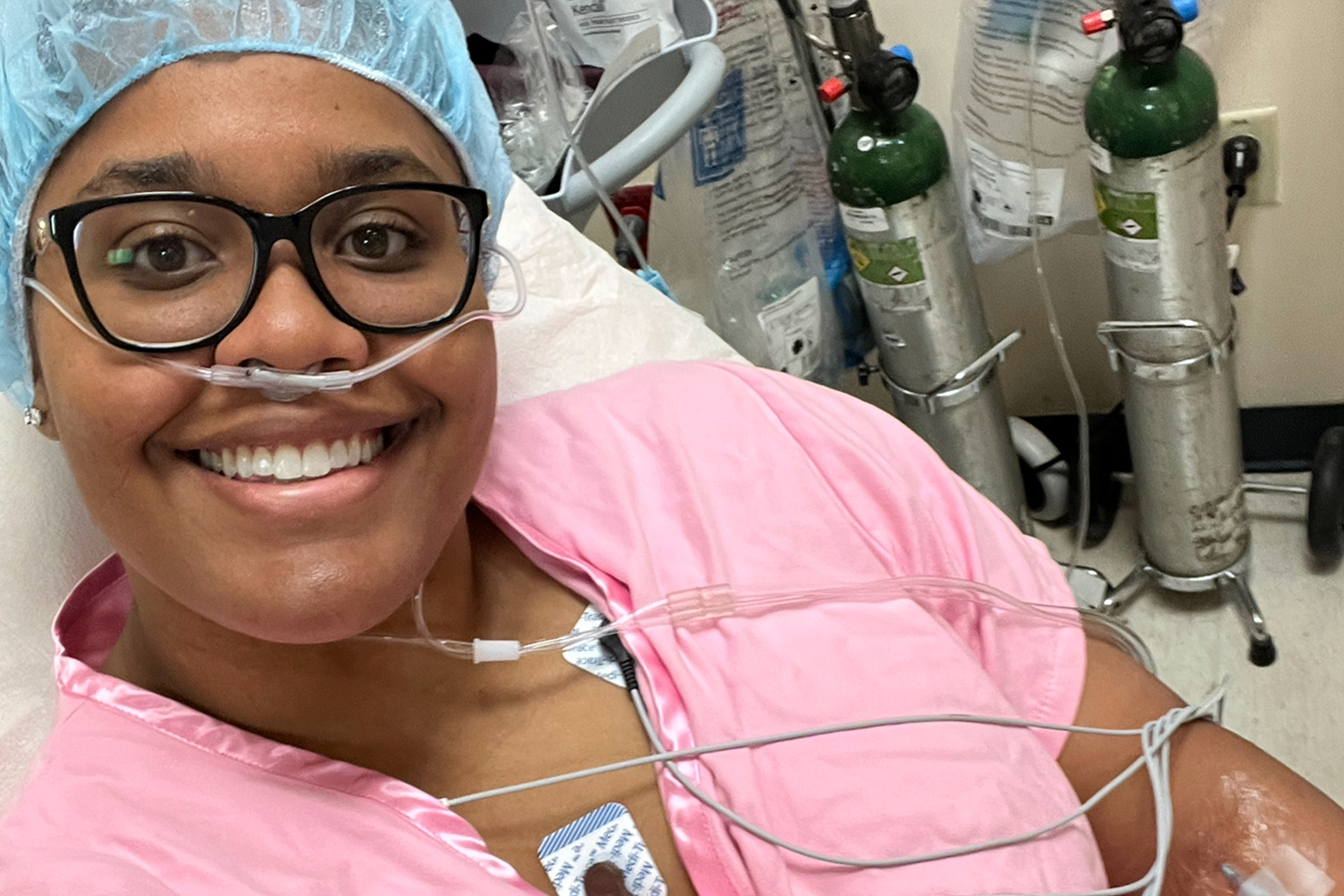What I Wish I Knew When I Was Diagnosed Young with Breast Cancer
Updated on November 4, 2025
Breast cancer is usually thought of as a disease that affects older people. But more young people are developing the condition than ever before.
Having breast cancer at a young age can make you feel like your world has been turned upside down. It can disrupt your education, career, family planning, or other life goals. And it can change your perspective on what matters to you.
We asked people from around the world who were diagnosed with breast cancer between the ages of 18 and 45 about the unique issues that younger people with breast cancer face — and what they wish they knew when they were first diagnosed. Their responses have been edited for clarity.
Anyone can get breast cancer
“I just wish I knew that 38 isn’t ‘too young’ to have breast cancer and that breast cancer can happen to anyone, regardless of family history. I thought it couldn’t happen to me, and I waited. Maybe if I didn’t wait, I wouldn’t have needed a more aggressive treatment.” —Katie
Read more of our series on being diagnosed young with breast cancer, and learn what people who developed breast cancer at age 45 or under wish others knew about their experiences.
“You’re not too young or too healthy to have breast cancer! I was in the best shape of my life before I was diagnosed after my first routine mammogram at 40.” —Kristen
You have to ask questions and learn fast
“You have to pick the best path for yourself and to do what you need to research your options and ask questions. Decisions need to be made but they need to be informed decisions.” —Michelle
“Breast cancer is so involved, it can be overwhelming to make a tailored decision after diagnosis. I wish I knew a breakdown of options between lumpectomy and mastectomy and how that decision might affect recurrence treatment.” —Danielle
“I did much research and was — and still am — happy with the difficult decisions made, but you don't have the gift of time for these decisions. They must be made swiftly.” —Melissa
“The more you can come up with questions to ask your team, the better your team can help you. You didn't have a choice in what's happened to you but you are the one who gets to decide what you can do now. Don’t stop until you get the answers that seem right to you. Never give up on you.” —Rosemary
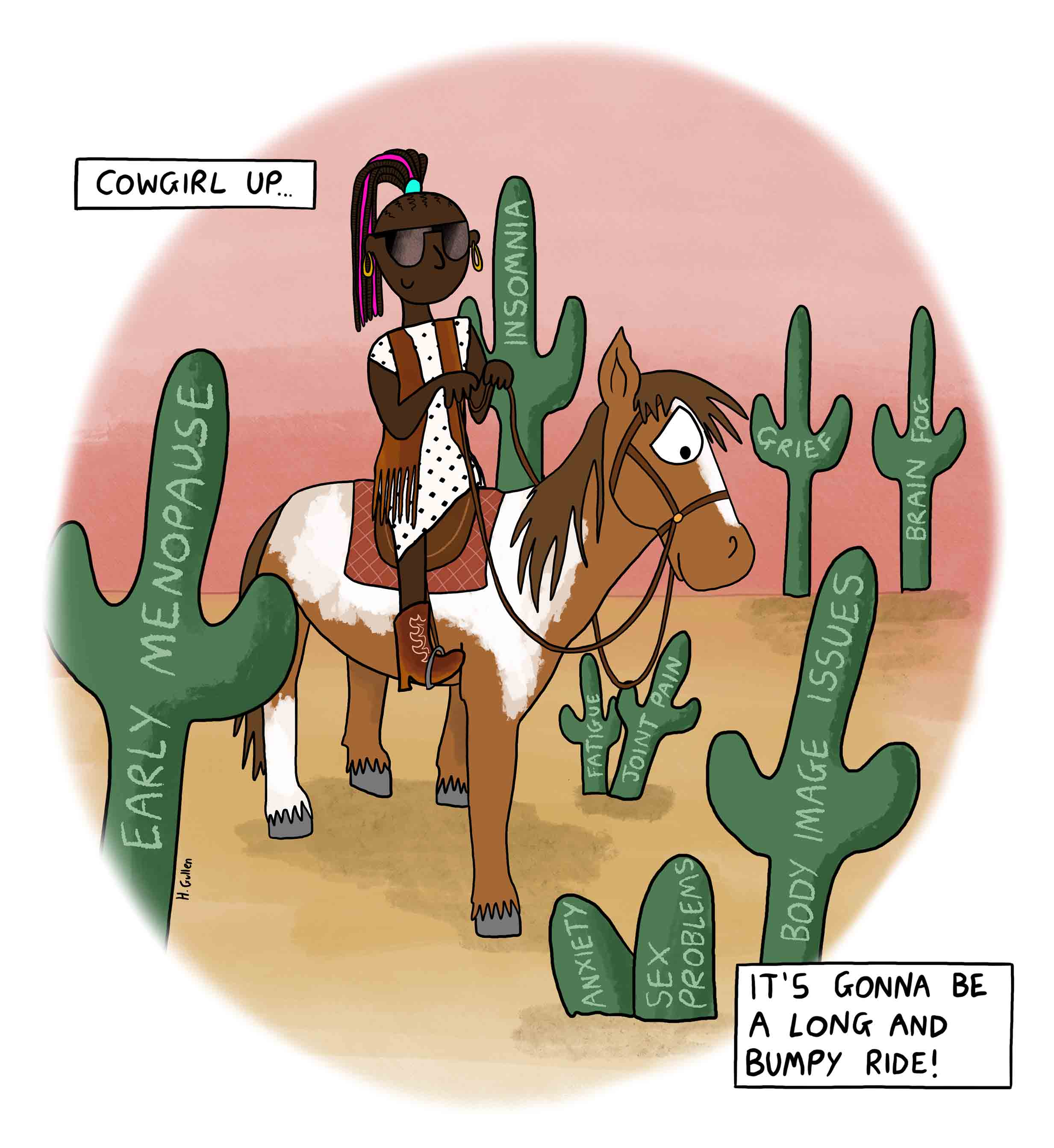
Illustration by Hayley Gullen.
You may need to revise your plan for having kids
“My diagnosis put a huge delay in my family planning. While I was able to freeze my eggs, all the therapies after chemo and radiation have delayed having kids by at least three years. That’s been hard emotionally. You have this picture of what your life will look like and it’s destroyed because of the disease.” —Georgeanne
“I always wanted a sibling for my only child, but I can’t give her a sibling now. I’ll always carry that guilt, knowing what she’ll miss by not having a sister or brother. I feel envious of people who have a normal life, who never would think of cancer.” —Srija
You’re your best advocate
“Ask the questions and keep asking until you understand and are comfortable with your options. The adulting you have to do is a lot, but don't give up!” —Nichole
“Do not be afraid to seek a second or even third opinion. If your oncologist truly wants what's best for you, they should understand that other facilities may offer better treatments.” —Lauren
“You will need to become an excellent patient advocate for yourself! It’s hard to do it alone, so bring your spouse, sibling, or friend with you to appointments so they can help advocate for you. They can also take notes, since it's hard to take in all the information yourself.” —Jennifer
Mental health struggles are common
“I wish someone had told me how to mentally deal with treatment. I was prepared for the physical side effects of chemo, surgery, and radiation, but no one prepped me for the emotional hell that I was about to go through.” —Courtney
“At every oncologist appointment the tech always asked if I was depressed, I always said no. Looking back, I wish I had said yes. There might’ve been something they could’ve done to help. I’m finally seeing a therapist and it’s been helping my anxiety and depression.” —Tarin
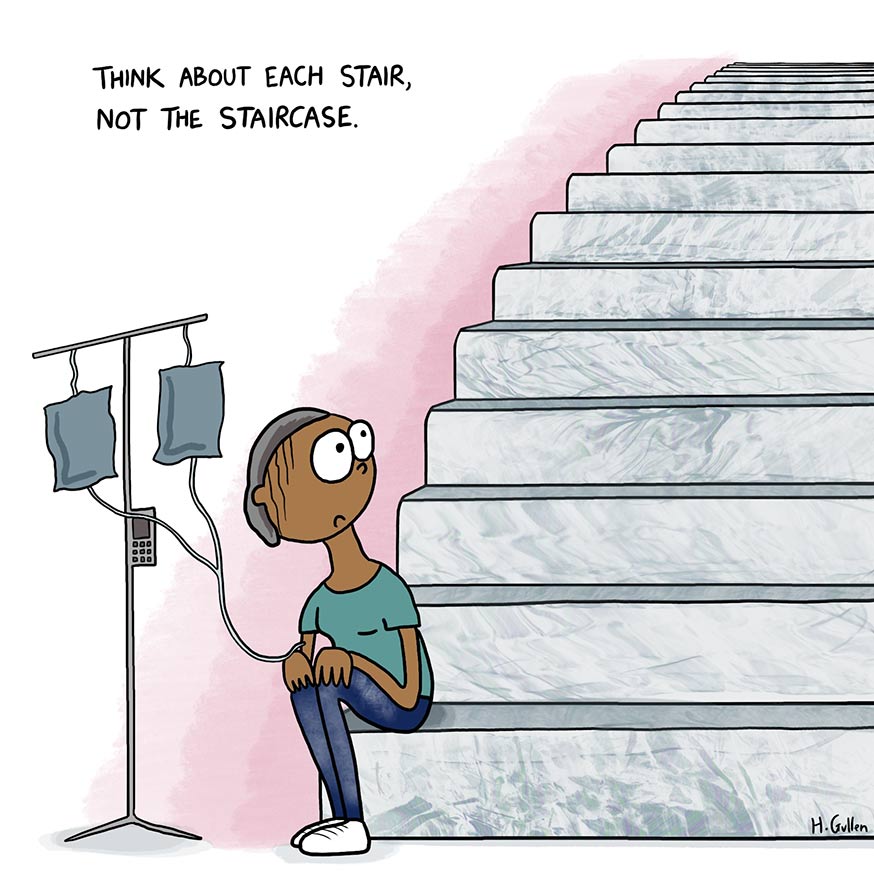
Illustration by Hayley Gullen.
“I wish it was better known that depression is a common occurrence during cancer treatment. I eventually went on an antidepressant, but I should have started it earlier than I did, it helped tremendously.” —Toni
There will be good days
“It all gets SO much better once the actual diagnosis is known and treatment begins. I was so scared of chemo, surgery, radiation, but looking back, the beginning was by far the worst part. While the world crashes down around you, you have to somehow keep going AND not freak out your kids? Intense.” —Terri
“I wish I'd known that I’d have plenty of days in between chemo when I feel reasonably well and could still enjoy my young family.” —Claire
There are people out there who get it
“Find someone who is a breast cancer survivor, with a similar scenario, and connect with them. It can be lonely, so make sure you have someone in your corner who has walked the road ahead of you.” —Nichole
“Going to a ‘young with breast cancer’ support group was one of the most healing things I did. I looked forward to that one hour once a month. Hearing from others going through the same emotions as me was huge.” —Tarin
Treatment doesn’t end with chemo or radiation
"Cowgirl up, it's going to be a long and bumpy ride." —Kris
“I wish I’d known more about the long-term effects of treatment. I thought once chemo and surgeries were done, I’d bounce back. No one warned me how long and nonlinear the recovery would be. The fatigue, the brain fog, and my body don't feel like mine anymore.” —Tamara
“Being diagnosed young and having hormone-positive cancer means having to be on tamoxifen or an aromatase inhibitor for a long time, until you reach menopause naturally. These drugs can make your body feel a whole lot older than it is. Bone pain, joint pain, swelling, inflammation, fatigue, all of it.” —Katie
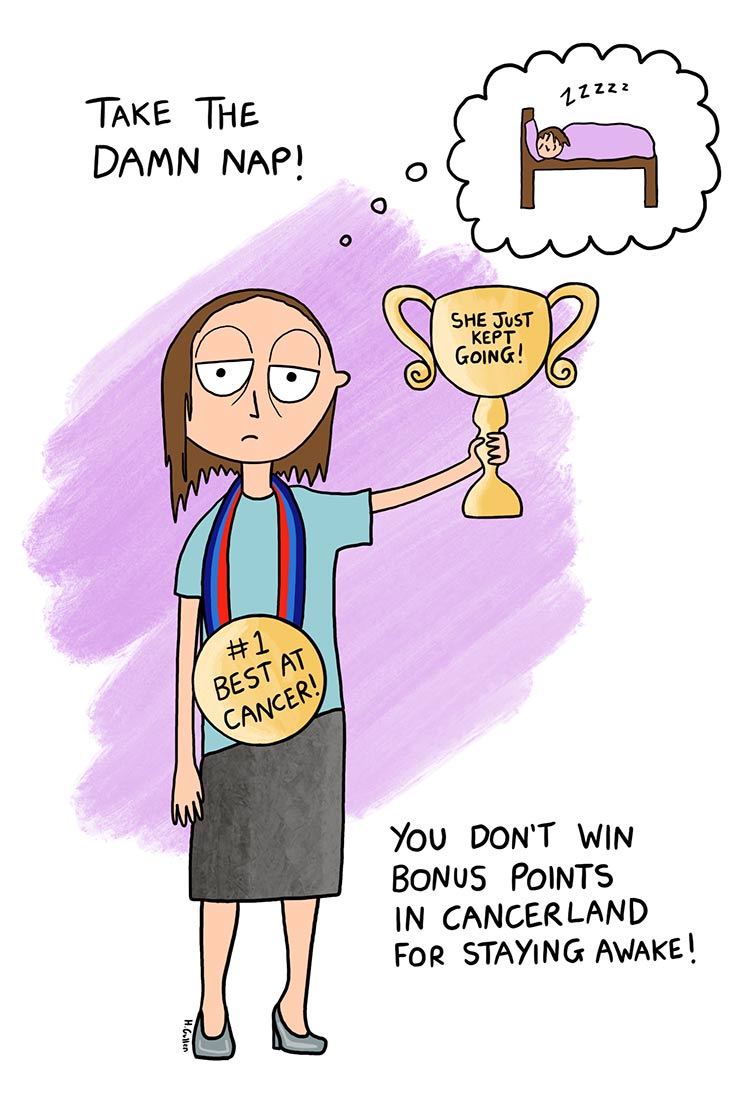
Illustration by Hayley Gullen.
“I wish I would have known how long and unpredictable the road to recovery would be. The best advice someone gave me was ‘think about each stair, not the staircase.’” —Hilary
Parenthood may look different during treatment
“It’s OK to use anxiety to get shit done. I was 40 and 42 at recurrence. The anxiety helped me clean, organize, do flower beds, ride bikes lugging my young children around. It was productive.…Hang in there.” —Ann
“I had an 18-month-old when I was diagnosed. Keeping up with my health, my treatments, and side effects with a toddler to care for was incredibly difficult. They don’t stop, and your body needs rest. So to balance the two was one of the most difficult aspects.” —Georgeanne
“It's hard to be the mom you want to be when you are navigating the diagnosis and while undergoing treatment. But your kids are resilient and they need to see you taking care of yourself.” —Nichole
You may go into early menopause
“Ask questions about menopausal or pseudomenopausal side effects that can occur during active treatment. Take the damn nap, you don't win bonus points in Cancerland for staying awake.” —Jessica
“Being pushed into menopause at a young age and dealing with the side effects have been a struggle. I’m also taking a CDK4/6 inhibitor as a preventative support and the side effects have been harder on me than chemo. I thought once I ended radiation I was past it, little did I know how much goes into keeping me healthy.” —Katie
“The impact on my sex life due to chemo/hormone suppression has been dramatic. Ask for vaginal estrogen right away!” —Nichole
“I wish someone had told me that it’s OK to not be strong all the time.” —Tamara
It’s OK to ask for help
“If I were to go through this again, I’d let people help me. More importantly, I would talk more. It's important that you talk to people throughout your journey. I waited too long for this and almost hit rock bottom. However a lovely counselor really helped me through the later stages of my treatment, and this is what got me through.” —Kelly
“Seek help and support. Don't try to do it with a brave face, alone. You'll drive yourself mad! If you need a distraction, send a message to a friend asking for a chat, seek support and information online from reputable sites, and talk to your doctor and a counselor.” —Amanda
“It seems like everyone jumps to support you when everything is uncertain, but once the chaos settles and you’re healing, that’s when you need support the most. It’s a lonely place after treatment, so speak up and tell people that you still need support! They don’t know you’re still dealing with a lot.” —Kelly
There are lots of options for breast reconstruction
“I wish I took a minute to research all the reconstruction options. I had a bilateral mastectomy with nipple removal, and I wish I would’ve saved my nipples. I did get 3D nipple tattoos a couple years ago and it has helped me enormously, getting my body as close to normal as it was.” —Pam
“A reconstructed breast will never feel the same as your original breast. If your breast cancer is only on one side, consider all your options, and think about what matters to you in terms of your identity, your sexuality, your health, your gender identification.” —Jennifer
“I wish I knew that I wouldn’t have sensation in my reconstructed breast implant, that it would always be cold. I was told that revision surgery should be avoided and I wish I knew to ignore that advice.”—Michele
Processing your diagnosis takes time
“I wish someone had told me that it’s OK to not be strong all the time. Grief, fear, anger, and confusion are all normal responses and there’s no right way to respond. I thought I had to stay positive for everyone, but what I really needed was space to fall apart and permission to feel everything.” —Tamara
“I wish I had known that ... even in the middle of treatment, side effects, and changes to my body, there would still be space for laughter, connection, and even joy.” —Caroline
“A cancer diagnosis isn’t just about treatment. When treatment is over, the real mental battle starts. Just because active treatment is over doesn’t mean your journey has ended and you snap back. Take your time and allow yourself to feel the emotions and heal.” —Hannah
“I wasn't prepared for the grief and sadness that came after I was done with chemo and my mastectomy. I was cancer free! Getting well took all of my focus. Once I was cancer-free, I had the time to process all that I had been through, what I lost, and what I overcame.” —Nichole
Some good things can come of this
“Your life, as you have known it, is forever changed. But it can still be a great life.” —Kris
“I wish I had known that I could face hard things without losing myself. That even in the middle of treatment, side effects, and changes to my body, there would still be space for laughter, connection, and even joy.” —Caroline
“After my diagnosis, I started taking more risks. I faced my fear of flying, joined a softball team, learned new hobbies, and deepened my friendships. I became the person I am after active cancer treatment. I am different, but I am still me, and I’m better for facing the hardest thing I’ve ever had to do in my life.” —Katie
